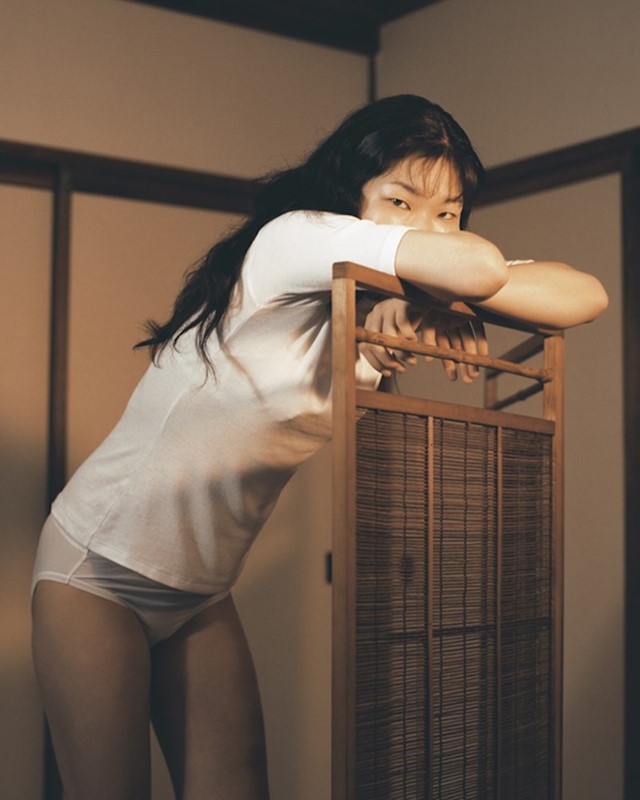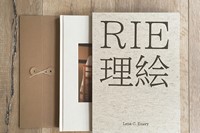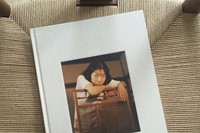The revered photographer's inaugural photobook examines sensuality and self-exposure through an innately feminine lens
Female-centered narratives exploring sexuality and self-exposure are a recurring theme for Lena C. Emery. The London-based photographer has a penchant for capturing tender moments, whilst trying to untangle the complex relationship between the act of revealing and one’s sense of self. Emery has just released her first monograph Rie, a personal work stemming from the desire to delve into the intimate exchanges she has with the women who step in front of her camera.
Born in Germany, the Singapore-raised photographer studied Fine Arts at the Parsons School of Design in Paris and worked as an independent art director in Berlin before relocating to London. Whether shooting modernist architecture or examining representations of the female form, Emery’s works are permeated by an aesthetic of sensuousness and poetry. She has shot for brands such as Lemaire, Dior, Stella McCartney and Helmut Lang, while her works have graced publications like The Gentlewoman, Pop and WSJ Magazine, amongst others.
Rie, published by Kominek, is composed of portraits of heroines bathed in warm light and captured in various states of undress, each emanating different shades of self-consciousness in relation to the onlooker’s gaze. Some exhibit the nonchalance of a professional model, whereas others appear to withdraw timidly from being observed. Rie, meaning ‘truth’ and ‘picture’, is also the name of the woman on the book’s cover, staring back at the viewer. When asked about how the idea for the project came about, Emery explains that she wanted to have a space to deeply reflect on the different aspects of what it means to reveal from a female perspective – and a book was the perfect form for that.
“When I first started taking pictures of women and asking them to reveal a part of themselves, it prompted a lot of questions,” Emery tells AnOther. “When do we equate being naked with being vulnerable? And when does this apparent vulnerability cross over into understanding the powerful notion of being naked and being ourselves, without being on display? When does it acquire a sexual connotation? When does it exploit?”

Immediately, John Berger’s seminal 1972 BBC series Ways of Seeing comes to mind. In particular, Berger’s argument that “To be naked is to be oneself. To be nude is to be seen naked by others and yet not recognized for oneself. A nude has to be seen as an object in order to be a nude.” It’s not the first time Emery has touched on Berger’s ideas though, as in a portfolio story titled Seen by Others from 2014 she examined how a woman’s perception of herself can be altered by the awareness of being looked at – how being observed might make one empowered or vulnerable; free, or apprehensive.
In Rie, Emery creates a similar dialogue with a cast of women who are not only passive and posing for the viewer, but also active and in motion regardless of an onlooker’s gaze. The photographer has always been fascinated by Japanese culture - specifically its ambiguous relationship with sex and nudity - so it’s no coincidence that all the women featured in the book are Japanese. “Having been exposed to an essentially conservative culture that is rooted in tradition but also extremely thirsty for anything erotic, new and technologically advanced, I feel that a lot of young Japanese women are aware of these discrepancies. This gives them the unique disposition of being able to relate to both and allows for a much broader conversation,” she explains.

Inside the book, there’s also a short poetic monologue written by the photographer herself which further explores how vulnerable the act of exposing ourselves and our skin to another can be. “By purposely taking the conversation out of a contemporary context and writing in the voice of a naïve young girl - ruminating on the joys of days spent uninhibitedly whilst living in rural Japan during a bygone era - I was hoping to re-instill a sense of innocence in the way that we view our bodies; and also encourage a connectedness with the natural world around us,” says Emery.

Rie by Lena C. Emery, published by Kominek, is available now.






